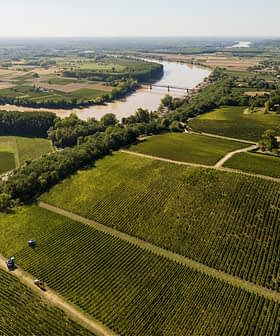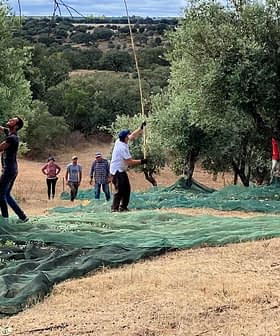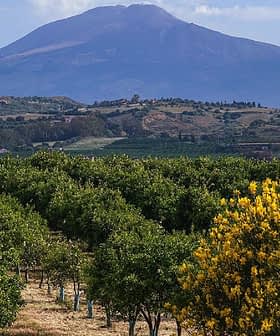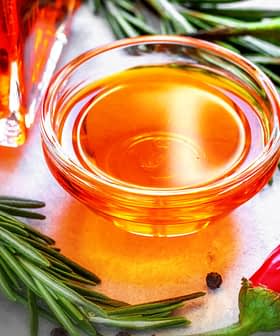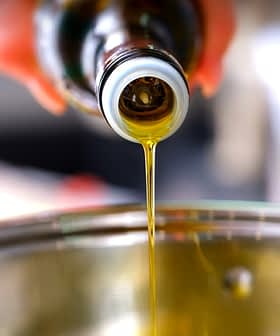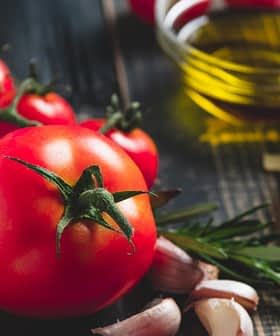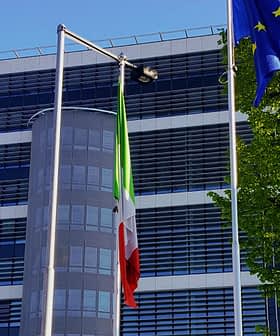French Olive Oil Producers Going Organic
Jean Marie Guerin is a proud organic olive oil producer in France, having converted his plantation to bio farming in 2000 and obtaining recognition from the State. Another producer, Robert Giraudeau, is also transitioning to organic farming to meet the growing demand for organic olive oil, utilizing natural methods to combat pests and maintain high quality standards.
By Alice Alech | Reporting from Vidauban, France
Jean Marie Guerin is a passionate man when it comes to his organic olives. Not only is he passionate, he is proud to be recognized as an organic olive oil producer. His olive oil, produced in France, has the national “AB” logo for organic products — agriculture biologique — which is administered by the State.
How did he get that recognition?
He converted his 17 acre olive oil plantation, Domaine de la Pardiguière to bio farming in 2000. Located in the heart of the Provence in Le Luc, Guerin decided to convert the plantation to bio farming in 1987 but, as “Bio” regulations stipulated a three year wait, he had to farm under bio conditions for three years
before his olives could be classified as organic.
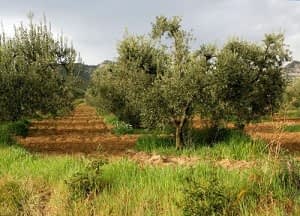 Although France produces much smaller quantities of olive oil than other countries, control methods are very strict. Yet oil production is increasing with growers striving to cultivate good quality olives and there is an increasing number of producers converting to organic agriculture, like Jean Marie Guerin.
Although France produces much smaller quantities of olive oil than other countries, control methods are very strict. Yet oil production is increasing with growers striving to cultivate good quality olives and there is an increasing number of producers converting to organic agriculture, like Jean Marie Guerin.
L’association Françaises Interprofessionnelles de l’olive (AFIDOL), the official French Association of producers of olives and olive oil, reported that France produced 7,000 tons of olive oil in French mills during the period 2008/2009; compared to 4,672 tons for the period
2007/2008.
Olive oil cultivation takes place in only eight of the sunniest regions of France. The Provence Alps-Cote‑D’azur region of France alone
produced 4,649 tons, or about two-thirds, of the olive oil for the period.
Olive oils from the Provence gained recognition from Institut National de L’origine et de Qualité (INAO) in 2007. This AOC French certificate is a guarantee that the olive oil produced here is of high quality and comes only from the Provence.
On AOC labels you might also see details of the olive; fruité vert, fruité mûr or fruité noir indicates the type of aroma, flavor and fruitiness.
Even though all olive oil producers face the same threats in their olive groves such as the olive oil fly (Bactrocera oleae), different sets of production standards exist for producers with the AOC label and those converted to organic faming. Guerin was able to resolve the problem of the olive fly without using pesticides.
“I am lucky,” he said, “to be isolated from other orchards. My domaine is right out in the country, far from any pollution. I don’t have as many flies as the other growers.”
 Guerin does a bit more than rely on luck. He suspends Ammonium Sulphate crystals traps on his trees to lure the female flies. “With one trap fitted to each of my 3,000 trees this is expensive and I do need to survey the traps carefully but it works really well and I don’t need any pesticides or weed killers”, he said.
Guerin does a bit more than rely on luck. He suspends Ammonium Sulphate crystals traps on his trees to lure the female flies. “With one trap fitted to each of my 3,000 trees this is expensive and I do need to survey the traps carefully but it works really well and I don’t need any pesticides or weed killers”, he said.
He uses an organic fertilizer from a cereal source on his soil and removes all weeds and shrubs around the trees by hand.
To be totally organic, the entire processing of the olives, including crushing cleaning and filtering, must be done in thoroughly cleaned equipment. Guerin does not have a mill on his plantation so has to reserve a mill for his olives making sure that the cleaning protocol is respected.
Standards are high in organic farming. At one random control session, examiners collected around 25 kilos of olives from different areas of his farm. The olives were tested at a certified laboratory for 83 different norms before he obtained his license for organic olive producing, a nerve-wracking time for anyone awaiting approval.
He grows six different types of olives and produces six corresponding extra virgin olive
oils. In organic production there must be no mixing of different varieties.
“This is why they come to me,” he explained. “Customers who are serious about buying organic know that my oils are pure and totally organic,” he added. Customers are treated to an olive oil tasting session before they buy at his plantation.
Robert Giraudeau, another olive oil producer lives in Vidauban, also in the Provence area. He’s been cultivating olives in his two- acre olive grove for over fifteen years now and is also drawn to organic farming.
This is only his first year in conversion to organic but his enthusiasm is obvious. “Organic olive oil cultivation imperative for the future; I have been cultivating under organic conditions for 15 years now,” he said.
Giraudeau deals with the olive fly differently. He plants Inule Visqueuse which acts as a botanical insecticide in his orchard. The inula produces a yellow flower which hosts a parasite (larvae of flies) which is itself parasitized by a small wasp. That in turn kills the larvae of the olive fly creating an organic olive oil chain
Giraudeau likes his olives to be fruity. “We pick them when they are green and are often one of the first to start picking.” he explained. He takes his produce to the mill in nearby Flayosc and collects his oils later. His bottled pure virgin olive oil has AOC recognition at present.
“I hope to invest in my own mill one day he said. Then I will be totally organic.”
Besides respecting the environment, organic olive oil producers are responding to a demand. Public opinion that organic food is healthier than conventional is strong and continues to grow throughout.
.


